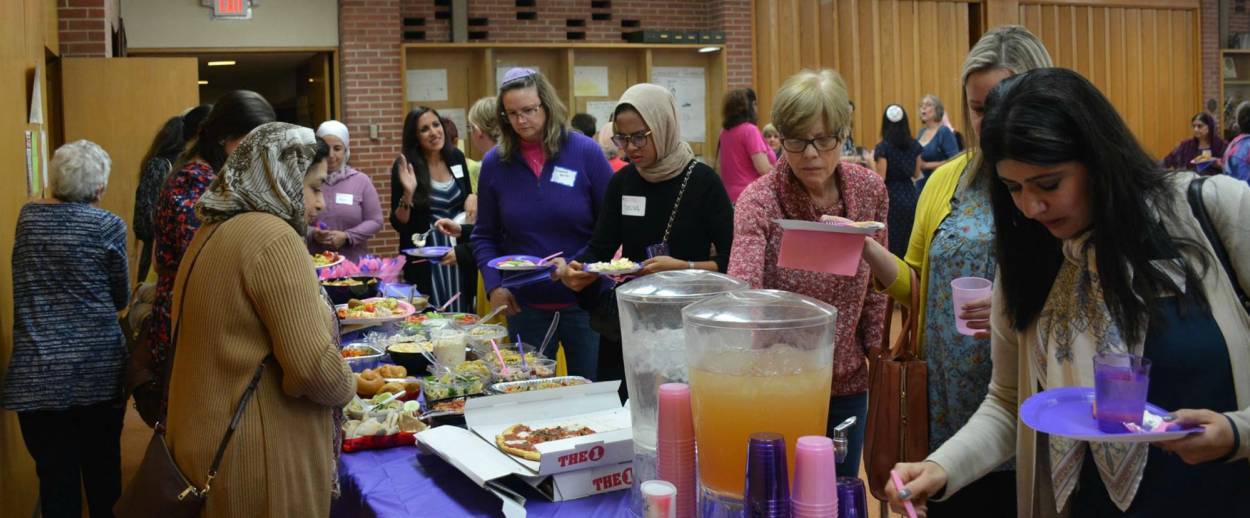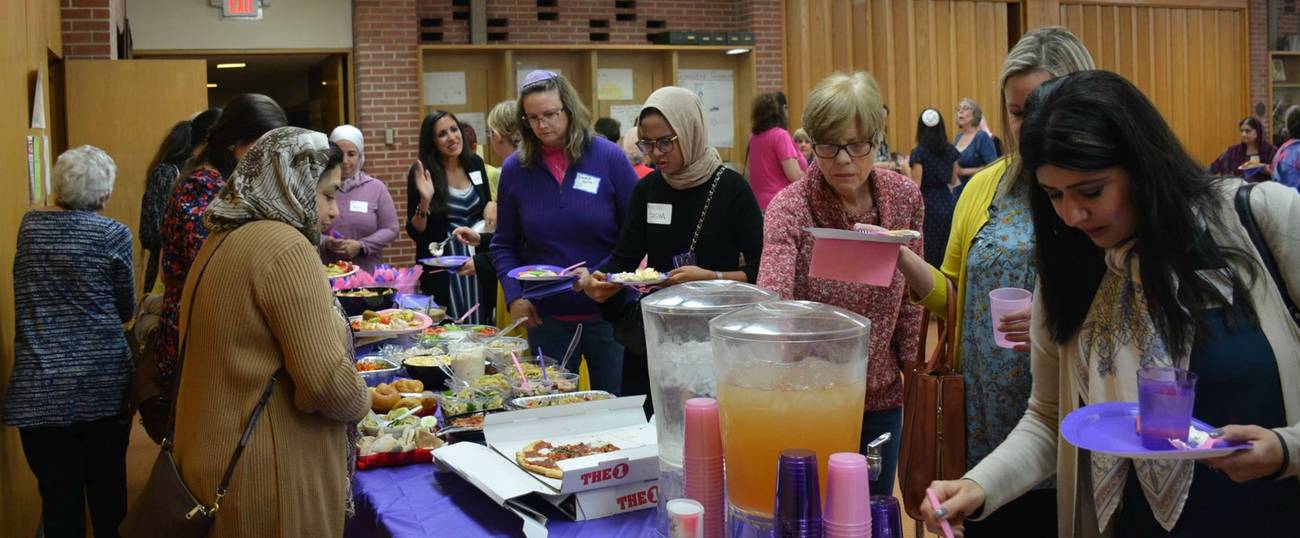How One Muslim-Jewish Women’s Group Goes Beyond Feel-Good Interfaith Work and Tackles Israel-Palestine
The Sisterhood of Salaam Shalom brings hundreds of women together to confront and bridge their differences




Last week I saw a provocative Facebook post that ended up generating a lot of conversation in my interfaith circles. It read, in part:
“Some forget that the institution of American slavery was an extremely intimate one. Enslaved people lived in close proximity to their owners. Slept in the same room in order to tend to the midnight whim of a Master or Mistress. Enslaved women breastfed white babies. White slave owners raped and impregnated enslaved women and then sold their own sons and daughters. We should disabuse ourselves of the notion that proximity or “getting to know” others of a different race or religion is the silver bullet. Dismantling white supremacy requires an understanding that our American way of life was designed to privilege Whites and white passing people and to subjugate, dehumanize people of color. It is a system that undergirds every aspect of American life. So no, a community BBQ may be a feel good photo op, but does not dismantle white supremacy.”
—Kameelah Rashad, MS, MEd Interfaith Fellow for Spirituality, Wellness & Social Justice, University of Pennsylvania.
On the one hand, I empathized with the sentiment. I have had similar frustrations in my interfaith work, and written about how too often amicable exercises in agreement are used to paper over deep divisions. In that sense, proximity and dialogue are insufficient for genuinely overcoming animosity, whether between races or between faiths. But unlike Rashad, I’ve found that it is possible for such personal interaction to bridge even cavernous gaps—but only if it doesn’t avoid the hard questions.
Focusing solely on what we share in common will not help us overcome the real issues that drive us apart. We can’t ignore the legitimate pain of others and expect to be rewarded with compassionate cohesion and unity. Rather, we need healthy ways and safe forums for conversations about that pain to take place. One of the most powerful examples I’ve seen of this transpired during the annual Sisterhood of Salaam Shalom conference two years ago.
The Sisterhood of Salaam Shalom is a national organization that brings together diverse Muslim and Jewish women into local chapters where they can form long-term relationships that serve as the foundation for honest, difficult conversations. At the national conference in 2015, Rabbi Amy Eilberg led a group of more than three hundred Muslim and Jewish women from across the U.S. in an exercise discussing Israel and Palestine. The women were to form pairs, taking turns speaking their own truth about Israel/Palestine and then listening to their partner speak theirs.
I watched the women pair off and face one another with a sense of uncertainty. The feeling in the room was heavy and serious. The first set of women took their turn telling stories to their partners in low, intimate voices. I watched their partners lean in to listen carefully, and watched their brows furrow and their eyes widen as they listened—and heard—without interruption or argument. After a few moments, Rabbi Eilberg signaled it was time for partners to switch, and I watched the same thing happen again.
When Rabbi Eilberg finally signaled the conclusion of the exercise, many women sat back in their chairs and took a deep breath. Everyone looked around the room at one another, taking in the enormity of what they had just accomplished. They had all committed to both speaking hard truths and listening to hard truths. When the exercise was over, there was a tangible sense of relief, but also, collective pride. They had done something together that many have tried to do and failed: they had talked through the real feelings and experiences around one of the most painful, polarizing ongoing conflicts in modern history. And they’d done it without hurting one another.
This kind of practical engagement that doesn’t shy away from uncomfortable conversations is why the Sisterhood of Salaam Shalom has grown exponentially as an organization in the past five years. This year’s conference in November will have 600 women attending—a testament to the idea that we crave authentic engagement, even when it makes us uncomfortable, over superficial exchanges that dissolve easily when difficulties arise.
Talking about the hard things is not fun. It’s much easier to convince people to come together for an interfaith party over hummus and holidays. That’s not to say that these kind of engagements have no value. Even the Sisterhood of Salaam Shalom requests that their chapters not discuss Israel/Palestine for the first year after forming. Sisters need to build connection and trust before they can have hard conversations. But it would be a mistake for us to stop there.
For real peace and long-term change to be possible, there are no shortcuts. Social capital is only built through shared sacrifice and the acknowledgement of real, lived experiences of those who make up our communities and societies. We have to commit to push past our discomfort and actively do the hard work of sharing our own pain and acknowledging that of others—and then look for a way forward together.
Amanda Quraishi is a digital media professional and diversity activist living in Austin, Texas. Find her on Facebook and Twitter.